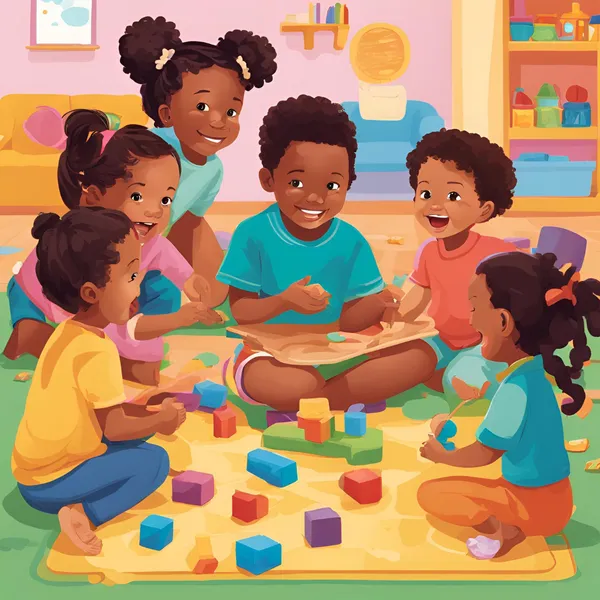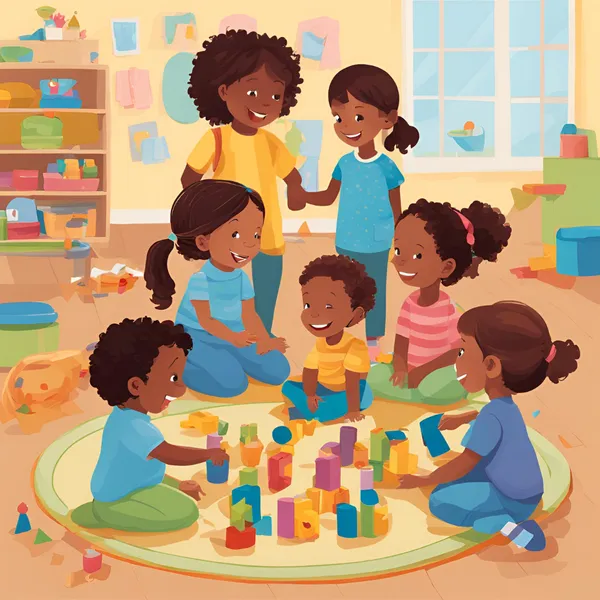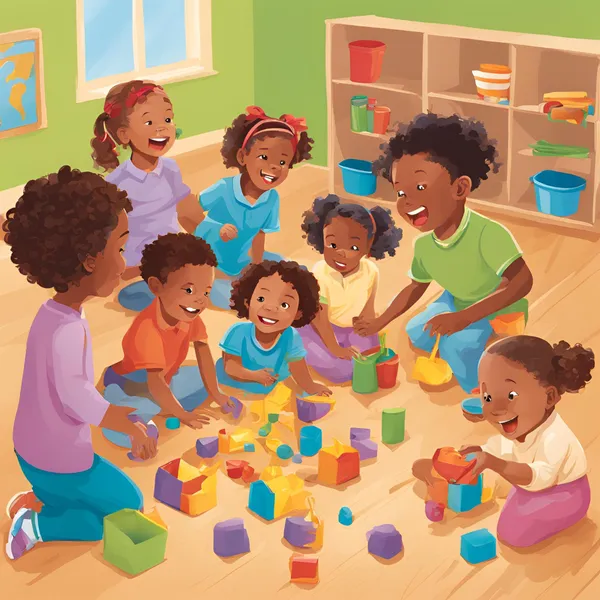Social skills activities for preschoolers
Much development occurs before age five, if not in academics but most certainly in social and sociable domains. Being at a conscious developmental stage in childhood psychology is accompanied by initiating relationships with peers, displaying feelings and comprehending other people’s emotions and behaviours.
Practical social skills in young children should be encouraged with the knowledge that social skills are a vital element of early childhood learning processes and social life. This article explores the importance of social skills development in preschoolers and offers practical social skills activities for preschoolers that parents and educators can use to foster these essential abilities.
Why Building Social Skills in Preschool Children is Important

Social skills can be understood as how children communicate with all members of society. They encompass a wide range of abilities, including:
Sharing
The skills of understanding that toys, materials and even attention should be shared.
Turn-taking
Firmness regarding play, conversation and other related activities by avoiding jumping the queue ratio
Cooperation, collaboration, and cooperation, at minimum, entails coming to an agreement or trying to agree.
Empathy
Empathy – to find out what people around you are feeling and to care for them.
Communication
Speaking loudly and clearly whether they have a need or a want, listening, and interpreting gestures.
These skills are not inherited but acquired, requiring practical mentorship. It is essential to realise that social skills play a significant role in how a child will turn out, hence the need to ensure they are adequately developed. They help children:
- Build positive relationships: Besides, those children Who are socially acceptable show favourable interpersonal relationships with peers and adults.
- Succeed in school: The pupils must relate well with others, whether in the classroom setting, in a good up and talk, or taking vacations.
- Develop emotional intelligence: The ability to identify one’s feelings or mood, self-regulation, and, at the same time, prehend and appreciate other people’s feelings as a constituent of socio-emotional development.
- Reduce behavioural problems: Poor social skill development makes children more vulnerable to getting frustrated, g aggressive, and isolating themselves.
Social Skills Activities for Preschoolers: A Practical Guide

Here are some practical social skills activities for preschoolers that focus on key social skills:
1. Promoting Sharing and Turn-Taking
Sharing Toys and Materials:
Instead, list a few favourite toys and insist that children exchange them or use them by turns during the day. Start using a timer when explaining to them that it’s their turn.
Board Games and Card Games:
For children with autism, toy cars, dolls, real-life imitations, and simple board games such as “Candy Land” or card games like “Go Fish” help improve turn-taking and follow instructions.
Passing Games:
Traditional games like “Hot Potato”, where a ball is passed around when music is on or in circle activities, maintain the principle of waiting one’s turn.
2. Encouraging Cooperation
Building Projects:
Building activities with blocks, LEGOs, or even boxes get kids working in pairs and groups so they learn to share and negotiate with others.
Group Art Projects:
Painting a big mural for a class or contributing to a group art project means children have to plan and use a particular item and share it.
Dramatic Play with Roles:
Taking turns and sharing toys, especially when playing gender-specific games, like pretend doctors and patients or cooks and their customers, helps foster the children’s aptitude for versions of cooperative gameplay amidst realistic dramatic pretend-play enactment.
3. Developing Empathy
Reading Stories about Emotions:
Choose books that portray different emotions and talk about feelings which characters may have. Questions include, “How do you suppose the character felt?” Or “Which of them do you think is experiencing that?” “Why do you think they are feeling that way?”
Talking about Feelings:
Engage children in self-communication and ensure that you reassure and accept their feelings. Help them put into words how they are feeling.
Role-Playing Scenarios:
Role-play different episodes using different emotions of sorrow, anger or joy. This assists children in ways they think that other people might be feeling in certain circumstances.
Complimenting Others:
Advise the children to say appropriate positive things to their fellow children. This encourages the employee and cultivates a good culture in that organisation.
4. Enhancing Communication
Circle Time and Storytelling:
During circle time, children should be encouraged to narrate what they know, come up with questions on what they do not know, and listen to other children.
Puppet Shows:
Professionally, recording and performing puppet shows for young children is advantageous because when children are shy, they can find it challenging to let go and perform as desired. This works best when encouraging them to engage in puppet shows and tell their stories.
Active Listening Games:
Choose games that force the child to listen and follow instructions to complete the game. For example, children’s games like Simon Says are very useful in teaching listening skills.
Using “I” Statements:
Parents and educators should guide children to use “I” messages to describe their true self, like, “I get angry when…” or “I need help with…”.
Practical Tips for Parents and Educators

Model good social skills
It teaches children about the different adult people around them and how they survive. Act out civil interaction, compassion, and collaboration in your transactions, too.
Create opportunities for social interaction
Organise outings, engage in social gatherings and ensure kids interact in other ways.
Provide positive reinforcement
Be supportive and positive to children whenever they portray good mannerisms and verbiage.
Address challenging behaviours constructively
If the child has difficulties in social skills,s one should talk to the child kindly and discuss issues ass having instructions and support.
Be patient and consistent
Getting good at social skills is not a one-day affair but a process that requires effort. Remember, it requires time and commitment to effectively explain and promote all the aspects of children’s social-emotional development.
By incorporating these social skills activities for preschoolers into daily routines and play, parents and educators can effectively nurture children’s social-emotional development.
These are not just social skills, although it is easy to create the impression that children who can share and wait their turn will also learn how to form good relationships, do well in school and face the world with their eyes wide open but with hearts full of compassion.
The more social skills are developed during the preschool years, the better a child’s future will be.


